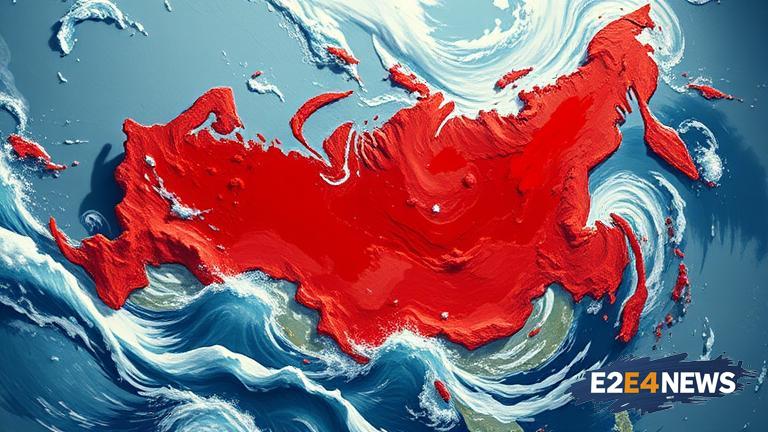A massive earthquake with a magnitude of 7.3 struck the Kamchatka Peninsula in Russia, causing widespread panic and triggering tsunami warnings across the Pacific Ocean. The earthquake occurred at a depth of approximately 60 kilometers, with its epicenter located near the coastal town of Ust-Kamchatsk. The region is known for its seismic activity, and this latest quake has raised concerns about the potential for a devastating tsunami. Authorities in Russia and other Pacific Ocean countries, including Japan, the Philippines, and Hawaii, issued tsunami warnings, advising residents to evacuate coastal areas and seek higher ground. The warnings were later lifted, but not before causing significant disruptions to daily life. In Russia, several buildings were damaged, and power outages were reported in some areas. The earthquake also triggered landslides, which blocked roads and disrupted communication networks. Residents in the affected areas were evacuated to safer locations, with many taking to social media to share their experiences and photos of the damage. The Russian government has dispatched emergency responders to the region to assist with relief efforts. The earthquake has also raised concerns about the potential for a tsunami to affect other countries in the region, with many governments putting their emergency response systems on high alert. The Pacific Ocean is prone to powerful earthquakes and tsunamis, and this latest incident serves as a reminder of the importance of being prepared for natural disasters. The earthquake has been felt as far away as Alaska and Japan, with many people reporting feeling the tremors. The United States Geological Survey (USGS) has reported that the earthquake was a shallow quake, which can cause more damage than deeper quakes. The earthquake has also triggered a series of aftershocks, which are expected to continue in the coming days. The Russian government has promised to provide support to those affected by the earthquake, with many residents already receiving aid. The international community has also offered its support, with several countries pledging to provide assistance. The earthquake serves as a reminder of the importance of disaster preparedness and the need for countries to work together to respond to natural disasters. The region is expected to experience more earthquakes and tsunamis in the future, and it is essential that governments and residents are prepared. The earthquake has caused significant damage to infrastructure, including roads, bridges, and buildings. The full extent of the damage is still being assessed, but it is clear that the earthquake has had a significant impact on the region. The earthquake has also disrupted economic activity, with many businesses forced to close temporarily. The region is expected to take several weeks to recover from the earthquake, with many residents still struggling to come to terms with the disaster.
